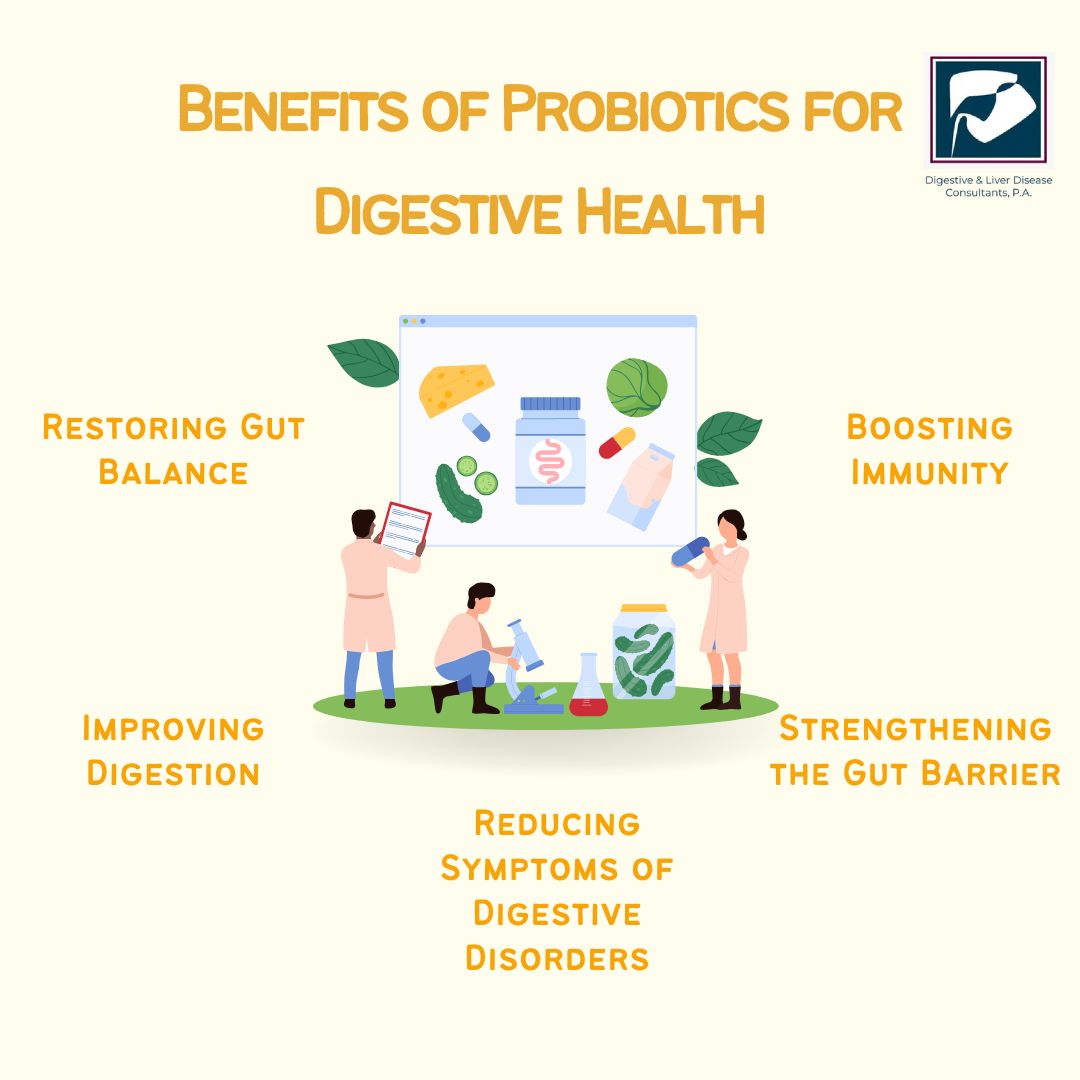When you think about gut health, you might imagine your stomach breaking down food. But did you know your digestive system is home to trillions of tiny organisms working hard to keep you healthy? These microorganisms, called gut flora or gut microbiota, play a vital role in your overall health. Among them, probiotics have gained the spotlight for their numerous benefits to digestive health and beyond.
In this blog, we’ll explore probiotics, how they work, and why they’re so important for a healthy digestive system.
What Are Probiotics?
Probiotics are live microorganisms, mostly bacteria and some yeasts, that provide health benefits when consumed in adequate amounts. They are often referred to as "good" or "friendly" bacteria because they help maintain a healthy balance in your gut microbiota.
You can find probiotics in certain foods, drinks, and dietary supplements. Common probiotic-rich foods include yogurt, kefir, sauerkraut, kimchi, and miso. Many people also take probiotic supplements to enhance their gut health.
How Probiotics Benefit Digestive Health
Restoring Gut Balance
Your gut can sometimes become unbalanced due to factors like poor diet, stress, illness, or antibiotics. This imbalance may lead to digestive issues such as diarrhea, bloating, or constipation. Probiotics help restore harmony in your gut by replenishing the good bacteria and keeping the bad bacteria in check.
Improving Digestion
Probiotics assist in breaking down food and absorbing nutrients more effectively. Certain probiotics can even help digest lactose, which is beneficial for people who are lactose intolerant.

Reducing Symptoms of Digestive Disorders
Probiotics have shown promise in managing conditions like irritable bowel syndrome (IBS), inflammatory bowel disease (IBD), and infectious diarrhea. By reducing inflammation and supporting the gut lining, they help alleviate discomfort and improve quality of life for individuals with these conditions.
Strengthening the Gut Barrier
A healthy gut lining acts as a protective barrier, preventing harmful substances from entering your bloodstream. Probiotics can help strengthen this barrier, reducing the risk of leaky gut syndrome and related health issues.
Boosting Immunity
Did you know that about 70% of your immune system resides in your gut? Probiotics support a healthy immune response by promoting the growth of beneficial bacteria and inhibiting harmful pathogens.
Sources of Probiotics
Food Sources
- Yogurt: Look for "live and active cultures" on the label.
- Fermented Foods: Sauerkraut, kimchi, miso, and pickles are excellent options.
- Kefir: A tangy, probiotic-rich drink made from fermented milk.
- Tempeh: A fermented soybean product that’s a good source of both probiotics and protein.
Supplements
Probiotic supplements come in various forms, including capsules, tablets, powders, and gummies. They often contain strains like Lactobacillus and Bifidobacterium, which are well-researched for their digestive benefits. When choosing a supplement, look for a product with multiple strains and a high colony-forming unit (CFU) count.
Are Probiotics Right for You?
While probiotics offer numerous benefits, they may not be suitable for everyone. Some people experience mild side effects like gas or bloating when they first start taking probiotics. These symptoms usually subside as your body adjusts.
It’s also important to note that different probiotic strains serve different purposes. For example:
- Lactobacillus acidophilus may help with diarrhea and lactose intolerance.
- Bifidobacterium longum supports gut health in individuals with IBS.
- Saccharomyces boulardii can prevent antibiotic-associated diarrhea.
Tips for Incorporating Probiotics into Your Routine
- Start with small amounts of probiotic-rich foods to see how your body reacts.
- Maintain a balanced diet that includes prebiotics (foods like bananas, onions, and garlic) to nourish the probiotics in your gut.
- Consult a healthcare professional before starting any new probiotic supplements, especially if you have underlying health conditions or are pregnant.
When to See a Doctor
While probiotics can work wonders for many people, they aren’t a cure-all. If you experience persistent digestive symptoms like severe bloating, chronic diarrhea, or abdominal pain, it’s essential to seek medical advice. Conditions like IBS, IBD, or even small intestinal bacterial overgrowth (SIBO) require professional evaluation and treatment.
Conclusion
Probiotics play a crucial role in maintaining and improving digestive health. From restoring gut balance to strengthening your immune system, these friendly bacteria are a natural and effective way to support your well-being.
At Digestive & Liver Disease Consultants P.A., we’re committed to your digestive well-being.
If you have questions about probiotics or need tailored dietary advice, schedule an appointment with our experts.






